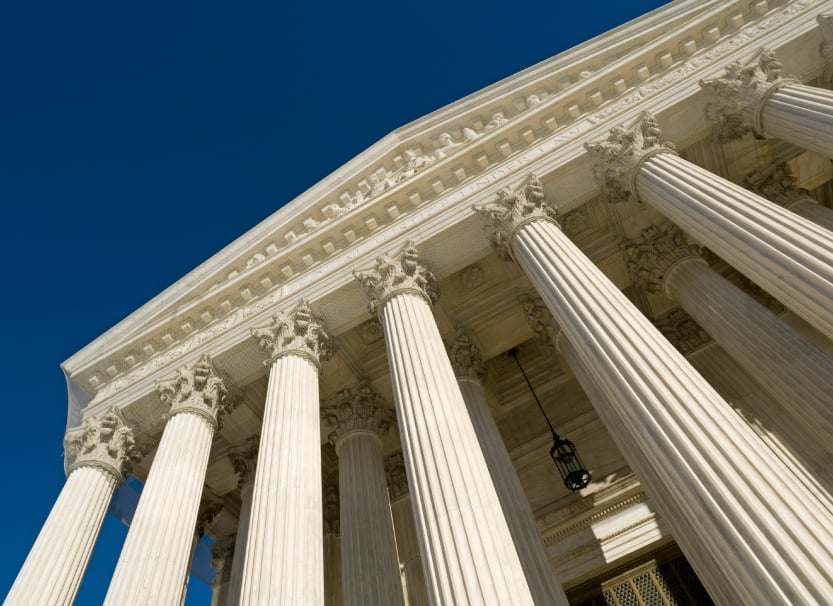
California Appellate Court Affirms Enforceability of Federal Forum Provisions in Securities Act Litigation
This past spring, the California Court of Appeal affirmed the enforceability of federal forum provisions (“FFPs”) in corporate charters. Bullock v. Rivian Auto., Inc., No. G063033, 2025 WL 1177303 (Cal. Ct. App. Apr. 23, 2025). FFPs, which require stockholders to bring claims for violations of the Securities Act of 1933 (the “‘33 Act”) in federal court instead of state court, were deemed facially valid in Delaware in Salzberg v. Sciabacucchi, 227 A.3d 102 (Del. 2020). Underscoring the importance of the forum for suits based on securities offerings, the plaintiffs in Bullock sought review of the California court’s decision. On August 13, 2025, the Supreme Court of California declined the plaintiffs’ petition for review. Petition for review & publication request(s) denied, Bullock v. Rivian Auto., Inc., No. S290922 (Cal. Aug. 13, 2025). The plaintiffs have now indicated an intent to seek certiorari from the United States Supreme Court. See Application to Extend the Time to File a Petition for a Writ of Certiorari, Bullock v. Rivian Auto., Inc., No. 25A506 (U.S. filed Oct. 31, 2025), application granted (Nov. 4, 2025).
Court of Chancery Reaffirms High Bar for Challenging Advance Notice Bylaws, but Emphasizes the Importance of Clear Drafting
On August 25, 2025, the Delaware Court of Chancery in Carroll v. Burstein dismissed a stockholder’s facial challenge to the advance notice bylaw of Stoke Therapeutics, Inc. (Stoke). An advance notice bylaw requires a stockholder to provide a company advance notice of its intention to nominate a director candidate or submit a proposal for approval by stockholders. The decision adds to the growing body of caselaw governing advance notice bylaws in the wake of Kellner v. AIM ImmunoTech Inc., 320 A.3d 239 (Del. 2024) (Kellner II), which held that a bylaw is facially invalid only if it cannot operate lawfully under any circumstance. In addition, Carroll offers an important reminder to companies of the need for careful bylaw drafting to promote clarity and foster sound corporate governance.

Delaware Court of Chancery Finds No “Truth” to Minority Shareholder’s Allegations of a Lock-Up Conspiracy by Truth Social Operator, But Does Not Reach Presidential Immunity
In September, the Delaware Court of Chancery dismissed a lawsuit by minority shareholder United Atlantic Ventures, LLC (“UAV”) against Trump Media and Technology Group Corp. (“TMTG”), the operator of social media platform Truth Social, and several other individual Defendants, including President Donald Trump, Devin Nunes, Donald Trump Jr., and Kash Patel. In the 55-page opinion, Vice Chancellor Will found that the Court of Chancery need not decide whether the case should be stayed based on presidential immunity, because all of the claims were incompatible with Delaware law, insufficiently pled “conspiracy theories,” or better suited for Florida state court.
California Supreme Court Holds Right to Jury Trial Does Not Bar Enforcement of a Delaware Forum Selection Clause
On July 21, 2025, the California Supreme Court issued a decision in EpicentRX v. Superior Court, reversing a decision by the California Fourth District Court of Appeal that declined to enforce a forum selection clause in a corporation’s certificate of incorporation and bylaws designating the Delaware Court of Chancery as the mandatory forum. As we reported at the time, the Court of Appeal concluded that because the Delaware Court of Chancery, as a court of equity, does not conduct jury trials, the forum selection clause in favor of the Delaware forum ran afoul of California’s “sacred” right to a jury trial and thus was unenforceable. In reversing, the California Supreme Court rejected this reasoning in its entirety, holding that “A forum selection clause is not unenforceable simply because it requires the parties to litigate in a jurisdiction that does not afford civil litigants the same right to trial by jury as litigants in California courts enjoy.” (more…)
Delaware Courts Continue to Reject Hypothetical, Unripe Bylaw Challenges
On April 14, 2025, the Court of Chancery issued a decision in Siegel v. Morris that reaffirms the limits of challenges to companies’ bylaws based on their language alone. This latest decision (pending appeal) will likely limit bylaw litigation to stockholder claims concerning any bylaw’s actual impact, rather than hypotheticals.

“Clear Day” Corporate Travel Gets Green Light From Delaware Supreme Court
The Delaware Supreme Court’s February 4, 2024 decision in Maffei (TripAdvisor) v. Palkon has substantially reduced procedural friction for Delaware corporations considering reincorporation in other states. It reversed the Court of Chancery’s ruling that denied TripAdvisor’s motion to dismiss and comes nearly a year after TripAdvisor’s interlocutory appeal was accepted. As Sidley’s Jim Ducayet and Deepa Chari wrote last May, the appeal’s acceptance despite the Court of Chancery’s refusal to certify its ruling for interlocutory appeal demonstrated the Delaware Supreme Court’s “willingness to step in … to ensure the coherence and predictability of corporate governance.” This month’s decision affirms Delaware’s commitment to predictability and underscores that a clear day decision to reincorporate elsewhere should be protected by the business judgment rule.

Court of Chancery Resolves Statutory Ambiguity in Favor of Boards Seeking to Increase a Corporation’s Number of Authorized Shares
Recent legislation in Delaware has eased the path of boards of directors who want to increase the number of a corporation’s authorized shares. In Salama, the Court of Chancery concluded that the General Assembly’s most recent effort in this area, made in 2023, has yielded an ambiguous statute. Salama v. Simon, No. 2024-1124-JTL, 2024 WL 4906737 (Del. Ch. Nov. 27, 2024). The court then resolved that ambiguity in favor of boards and against stockholders opposing share increases.
Eye Doctor With Blind Spot Loses LLC Manager Position
Last month, the Delaware Court of Chancery upheld an amendment of a Limited Liability Company agreement through a merger even when it had recently struck down a similar amendment in the same LLC agreement. In Campus Eye Management Holdings, LLC v. E. Bruce DiDonato, OD, Vice Chancellor Will concluded that because the LLC agreement contained no provision explicitly forbidding amendment through merger, the amendment was valid and enforceable. The ruling might not be eye-catching, but it is an important reminder that parties to an LLC agreement, and particularly those with minority power, must have a clear vision into not only the express provisions of the contract but also the implications of any gaps that will be filled by the Delaware Limited Liability Company Act, 6 Del.C. § 18-101, et seq. (the “LLC Act”).

Chancery, Affirmed: Delaware is ‘Contractarian,’ So Please Read The Fine Print
On July 5, 2024, the Delaware Supreme Court affirmed a Court of Chancery decision in REM OA Holdings, LLC v. N. Gold Holdings, LLC that serves as a warning for parties entering a contract or other binding document to diligently review each term of the agreement, including by proactively seeking out, reviewing, and analyzing any documents incorporated by reference.
The Delaware Court of Chancery Undertakes Exacting Calculations of Equitable Damages and Will Award Tens of Millions of Dollars? Yes, It Does That, Too.
The Delaware Court of Chancery is of course a court of equity, focusing often on governance and contractual rights. The Court of Chancery also periodically issues damages opinions, and on May 28, 2024, Vice Chancellor Lori Will did just that in Brown v. Matterport, Inc. At issue in Matterport was whether the plaintiff stockholder—following an earlier trial ruling that the defendant corporation had wrongfully (albeit in good faith) prohibited the stockholder from selling his shares—was entitled to damages and, if so, the proper method for computing damages. Vice Chancellor Will held that damages were appropriate based on the facts at issue, and in issuing a damages award of approximately $79 million, the Court undertook a rigorous approach in determining both the appropriate method to compute damages as well as the inputs for that calculation.

